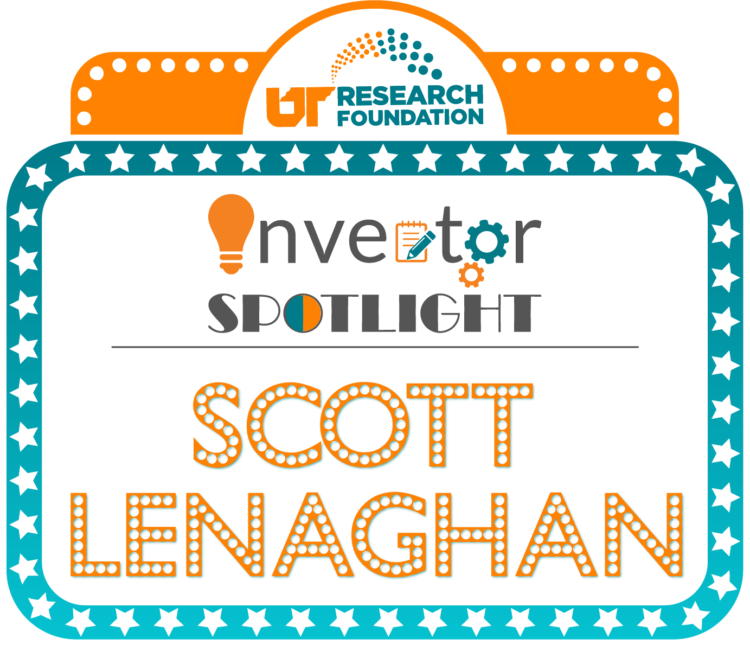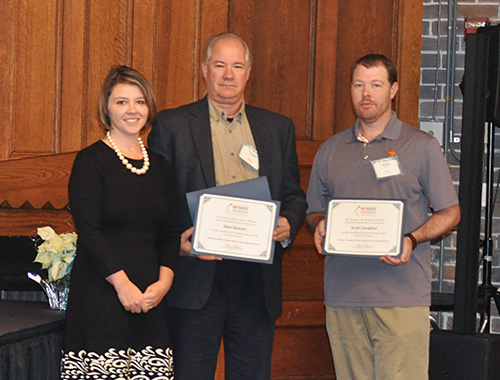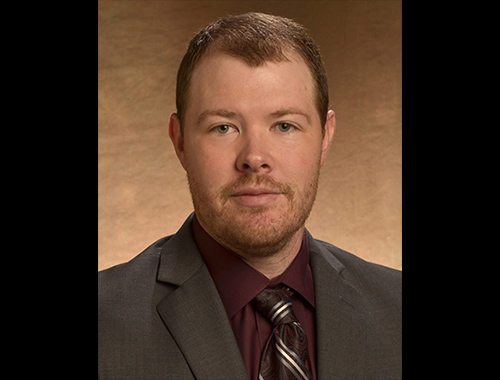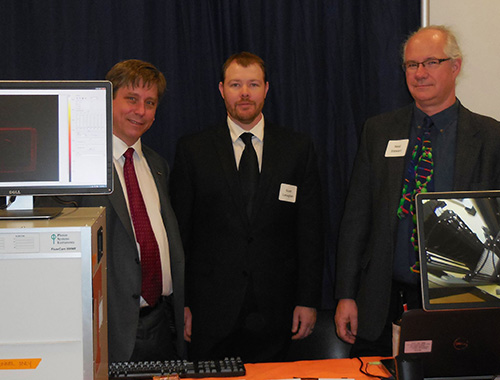
Scott Lenaghan, PhD, is an assistant professor in the Department of Food Science at the University of Tennessee Institute of Agriculture (UTIA) and holds an adjunct position in the Department of Mechanical, Aerospace, and Biomedical Engineering (MABE). His research focuses primarily on synthetic biology and bioengineering, and his lab is nationally recognized for its research into the development and use of synthetic biology for global food security. Lenaghan received his PhD in biological sciences from Auburn University, coming to UT in 2009 as a post-doc and eventual research assistant professor in biomedical engineering. He assumed his current position in 2016 after three years as a research assistant professor at UT’s Center for Renewable Carbon.
Lenaghan’s research contributions impact the community on both a local and global scale. In fact, three of Lenaghan’s current research projects are funded by the U.S. Defense Advanced Research Projects Agency (DARPA), an organization committed to investing in breakthrough technologies for national security. These projects include increasing the photosynthetic efficiency of potatoes to yield larger crops and using synthetic biology to design smart materials. Perhaps most notable of the three is a four-year, $7.5 million project, conducted in collaboration with the Massachusetts Institute of Technology, to modify potato plants to detect and report compounds relevant to the Department of Defense. Though the project currently focuses on developing advanced biosensors for the military, its research could have broader implications in agriculture. Applying the same technology to other crops may one day help farmers identify pest, drought, or salt stress within their fields. Projects like these present opportunities to identify unique challenges and explore specific solutions, and those opportunities drive Lenaghan’s research. Describing the motivation behind his work, he comments,
“I like problem solving and that’s why I like research. I like tackling problems that are facing the global community and trying to answer questions that maybe someone has asked before but was unable to answer. The exciting thing about research is getting to solve a problem that no one’s solved before.”



Lenaghan applies his problem-solving mentality to a wide range of disciplines. In addition to DARPA work, he is also engaged in an APRA-E (Advanced Research Projects Agency – Energy) project to create the first synthetic plant chloroplast. Much of the research for this project will be aided through the new Center for Agricultural Synthetic Biology (CASB). Launched in September 2018, CASB is the first university research facility dedicated to the use of gene editing and other synthetic biology methods to improve agriculture. Lenaghan believes that the new facility will not only support research that leads to better crop plants, farm animals, and food microbes but put Tennessee at the forefront of the intersection of agriculture and sustainability. He serves as CASB co-director along with C. Neal Stewart Jr., professor of plant sciences and the Ivan Racheff Chair of Excellence in Plant Molecular Genetics at UTIA.
Beyond his research at UT, Lenaghan is involved with the Genome Project-write (GP-write) consortium. Essentially the second generation of the human genome project, GP-write is an open, international research project directed by a multidisciplinary group of scientific leaders. Lenaghan currently collaborates with other GP-write members to develop a work plan that envisions the future for synthetic biology and potential advances it can bring in disciplines such as plant science, medicine, and biotechnology. One of his current project proposals involves installing “mini-symplastomes” in crops. The group is also considering the ethical implications of emerging technologies for human and animal medicine, agriculture, and biotechnology.
For nearly 10 years, Lenaghan has worked with UTRF to patent and license synthetic biology technologies. In 2017, he received a grant through the UTRF Maturation Funding program to advance a technology related to high-throughput screening of plant promoters. Currently, Lenaghan has two patent-pending technologies: One is for a novel method of transforming chloroplasts for biopharmaceutical production or plant improvement. The second is for an automated system for promoter screening.
“UTRF is proud to partner with Lenaghan as he turns his research expertise and innovation into advancements for global societal benefit,” says UTRF Vice President Dr. Maha Krishnamurthy.